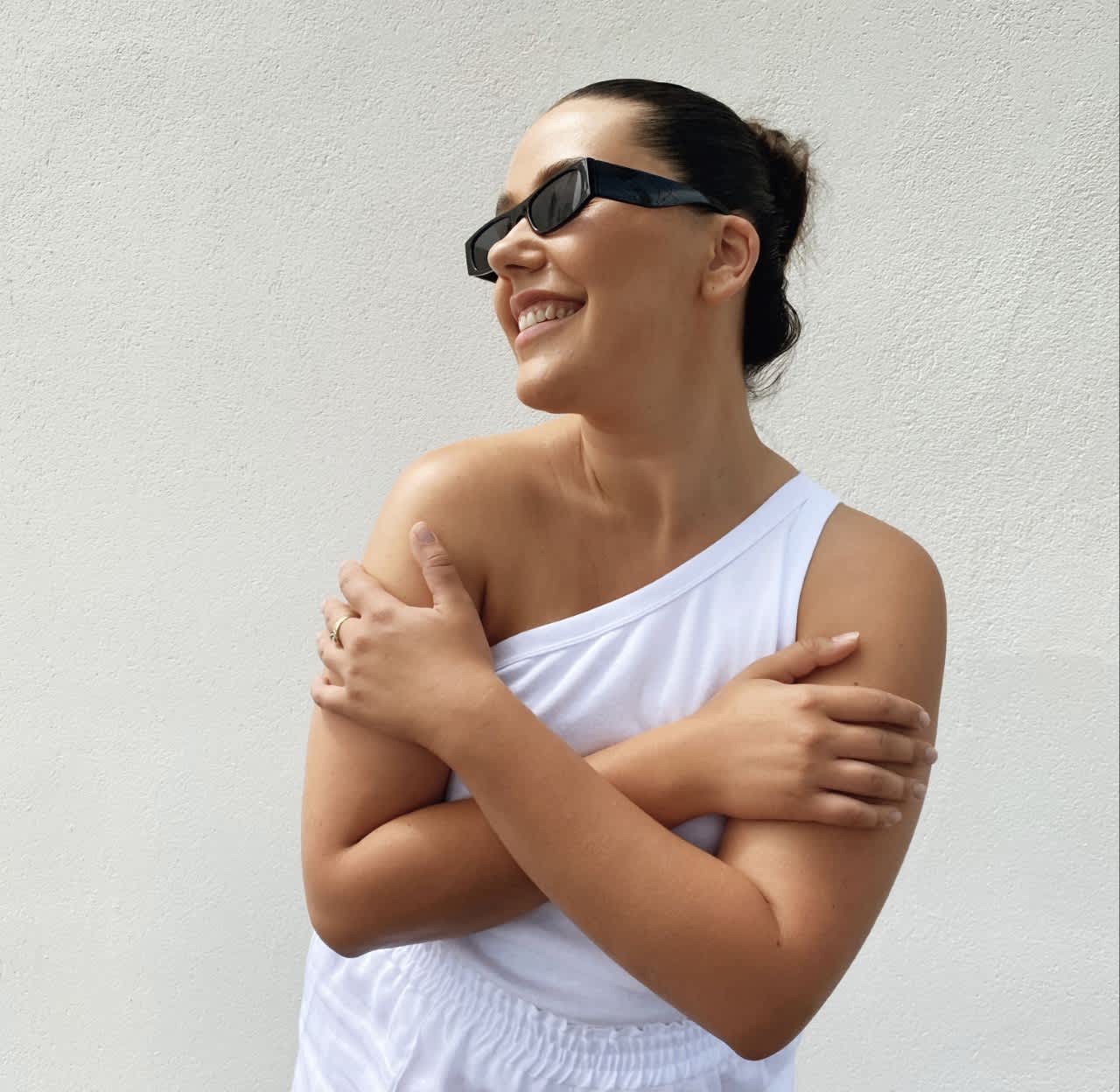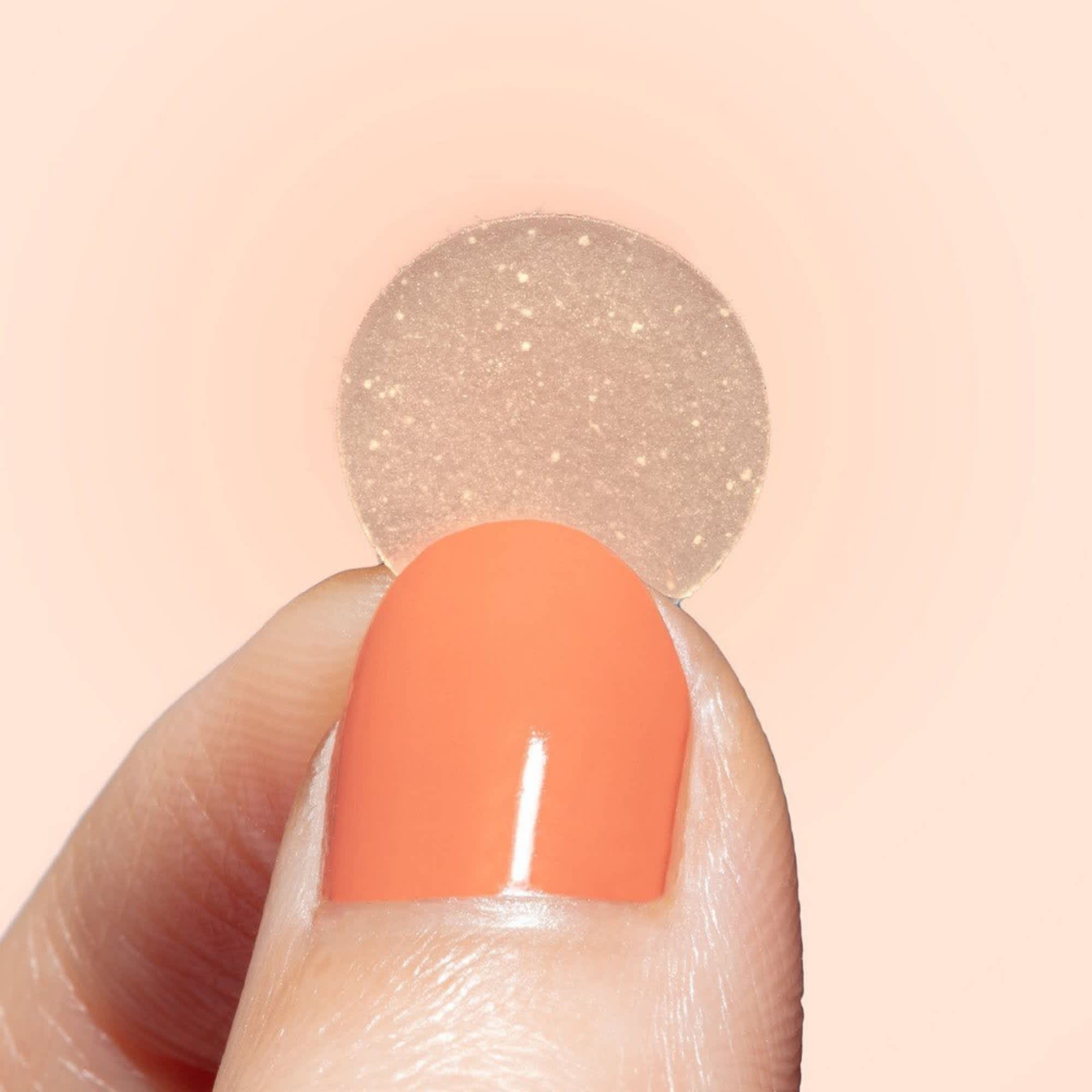
- POPSUGAR Australia
- Beauty
- Skinimalism: Are We Using Too Many Skincare Products?
Skinimalism: Are We Using Too Many Skincare Products?

When I was a teenager, I had really irritated skin and acne-filled periods that made me feel extremely self-conscious.
I tried so many different products, ideas and methods to try and calm my skin. I used creams, scrubs, masks, overnight treatments. Every store I’d go to, every website and every brand would tell me something completely different and I thought I may as well try them all.
I’m going to be real with you, none of the things I tried worked. Now that’s not to say that there aren’t incredible products and methods out there that do work; I’ve actually experienced a few in my adult life. But during the time of my life where my skin was the worst, I was overwhelmed by the amount of advice and different products, that I didn’t know which way to go.
Recently, I’ve been seeing the term ‘skinimalism’ everywhere. According to Biologi’s Dermal Specialist, Lucy Macdougald, “Skinimalism sees people cutting back on the number of skincare and makeup products that they use in their routine and instead opting for a couple of multi-tasking heroes.”
Basically, a less is more approach.
Upon reading up about it, I realised that I’d adopted skinimalism over the past year or two without even thinking about it, and my skin hasn’t had a bad breakout during that time.
It might have something to do with the fact that COVID lockdowns have allowed me to wear makeup less and in turn, have given my skin a well-deserved break, or it could simply be because I’ve stopped over-buying products that I don’t end up finishing.
Either way, lockdown has certainly had an impact. It’s forced me into having a cleaner and less cluttered bathroom cupboard (it was driving me mad), to be more conscious about sustainable consumption and given my skin a rest from makeup and different climates.
What is ‘skinimalism’?
Skinimalism is a new beauty trend. According to Lucy Macdougald, it’s “the biggest beauty trend of 2021″, which makes sense. It has a real ‘accept the skin you’re in‘ feel to it.
“Gone are the Kardashian-esque contouring regimes and in its place is fresh and natural-looking skin without all the layers,” Macdougald told POPSUGAR Australia. “Skinimalism is about focusing on your skin so you’re comfortable showing off any perceived flaws (hello, freckles) and not hiding behind layers of makeup.”
If lockdowns have taught us anything, it’s that not wearing makeup every day is refreshing. We’ve been forced to forgo nail appointments and haircuts and retail fashion shopping… and we don’t feel any less beautiful. I mean sure, some days my untreated eyebrows make me feel a little naked and my eyebrows don’t pop as much when I take a selfie, but the minimal beauty routine has been a welcome change.
How does our skin benefit from ‘skinimalism’?
“By stripping back an overly complicated skincare routine, the skin has a chance to repair itself, rebuild its natural acid mantle and get back to its regular pH levels (and to do this you really do need to strip it back),” said Macdougald.
“Overcomplicating your routine risks confusing the skin and can cause excessive oil production (or do the opposite and strip the skin creating issues with the barrier function of the skin which can lead to things like dermatitis) or make it used to working hard to remove toxins, rather than working hard to rejuvenate itself.”
Basically, using too many different products too often can confuse your skin. It will try to compensate and balance itself, that it can just end up freaking out.
For example, if you use a really harsh scrub often, then your skin will produce more oil to keep itself moisturised, as it’s not used to the post-scrub dryness. Then, if you use a strong moisturiser to try and counterbalance the dryness, the oil that your skin has already produced mixed with the moisturiser may cause build-ups on your skin, which can result in clogged pores and — the dreaded word — pimples.
“Another issue that comes with overcomplicating skincare routines, is layering active ingredients that don’t like each other.
“This can effectively cancel out the benefits or in worse case scenarios, cause harsh reactions. A common example of this is people using a retinol and Vitamin C together. This is, unfortunately, a recipe for disaster that can result in redness, irritation and skin peeling. It will also increase your skin’s sensitivity to the sun, so you’ll be at a higher risk of getting UV damage.”
How can we implement skinimalism into our beauty routines?
There’s a lot of information here, I know, but don’t be overwhelmed. Moving to a more minimalist skincare approach is actually super easy.
“Before you throw out all of the products in your bathroom cabinet, think about the absolute must-haves that you need in your routine. Must-haves would be a gentle cleanser like Biologi’s Bc Refresh Cleanser ($74), an exfoliant, a multi-tasking serum like Biologi’s Bf Restore Face and Body Serum ($72) and a sunscreen,” Macdougald suggests.
“The skin doesn’t really need much else to thrive! Start by cutting out one or two products, then gradually reduce it down. Things like toners, mists, sheet masks, day creams, night creams could all be considered ‘nice to have’ and not an absolute necessity in a skincare routine.”
Seeing many of us are currently in lockdown, now is the perfect time to opt for a minimal skincare routine. You could even just try it for a month and see if you notice any differences in your skin.
It’s also the perfect time to take some days off wearing makeup (if you haven’t already), to really allow your skin to breathe and rejuvenate.
When it comes to skincare, there is no recipe for perfect skin, you’ve just got to try different things and see what works for you.
‘Skinimalism’ doesn’t mean no products, it’s just all about finding those few products that really work for you, and getting into a routine with them. Giving your skin an actual routine allows your skin to work for itself a bit.




